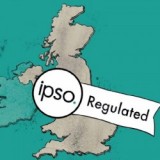 A regional news website was responsible for a reader’s social media comment that named a child suspected of a crime, the press watchdog has ruled.
A regional news website was responsible for a reader’s social media comment that named a child suspected of a crime, the press watchdog has ruled.
The Independent Press Standards Organisation has found against Cornwall Live after the boy’s mother complained about the comment, which was published on the Reach plc-owned title’s Facebook page.
The decision was made despite a finding that IPSO’s handling of the case had been flawed, following a complaint about the process by Cornwall Live.
The 14-year-old’s mother had complained to IPSO under Clause 1 (Accuracy), Clause 2 (Privacy), Clause 6 (Children), and Clause 9 (Reporting of Crime) of the Editors’ Code of Practice after a Cornwall Live reader claimed to name five of the six teenagers, including her son, who were allegedly involved in an assault on a homeless man.
She said that her son had not been named by the police, and that allowing the sharing of his name put her child in danger and had had a “massive impact on him” because he still in full-time education, although he did not attend school due to safety concerns.
The woman said she had spoken to a Cornwall Live journalist in March 2022, the month after the comment was published, to ask for the comment to be removed and was told in response that the reporter would go through the comments and remove any which named her son.
Cornwall Live did not accept that the comment’s publication was within IPSO’s remit and said that comments posted on its Facebook page were not pre-moderated, adding it had had no record of having received a phone call from the woman regarding the February comment in March 2022.
The site said that it kept no record of complaints received via phone because complaints are generally accepted only in writing or via its online complaints form.
Cornwall Live also said that it had only understood IPSO’s initial correspondence to relate to a story and a separate comment, published in May 2022, and that it had only been made clear in a subsequent email from IPSO, received on 17 June, that the February Facebook comment was under complaint. the February comment was then removed on 6 July.
The site added its editor did not have any control over the comments being posted, so it followed tha it could not be said to have named the boy or to have allowed him to be named, further noting the names of the children were in the public domain before the comment was published.
IPSO noted it had included a copy of the February comment in its initial correspondence with Cornwall Live on 1 June 22022 and did not accept that the comment had not been brought to the site’s attention on 17 June that year.
The Committee further noted that the phrase ‘Editors’ is used numerous times in the Code to denote the individual within the publication with ultimate responsibility, rather than to limit complaints only to content which has been prepared by the publication itself.
It found that the continued publication of a comment publicly identifying the boy as one of the perpetrators of the alleged crime clearly intruded on his schooling, and that the intrusion was unnecessary, in breach of Clause 6 (i). However, not other breaches of Code were found.
A subsequent independent review found the IPSO process was flawed because the Committee had not taken social media posts provided by the woman into account when reaching its decision, and had not had sight of the additional social media posts provided by Cornwall Live.
The complaint was then returned to the IPSO to consider the complaint, at which point an amended ruling was issued.
A second request for review by Cornwall Live was rejected by the reviewer. The full adjudication can be read here.





 Follow HTFP on Twitter
Follow HTFP on Twitter